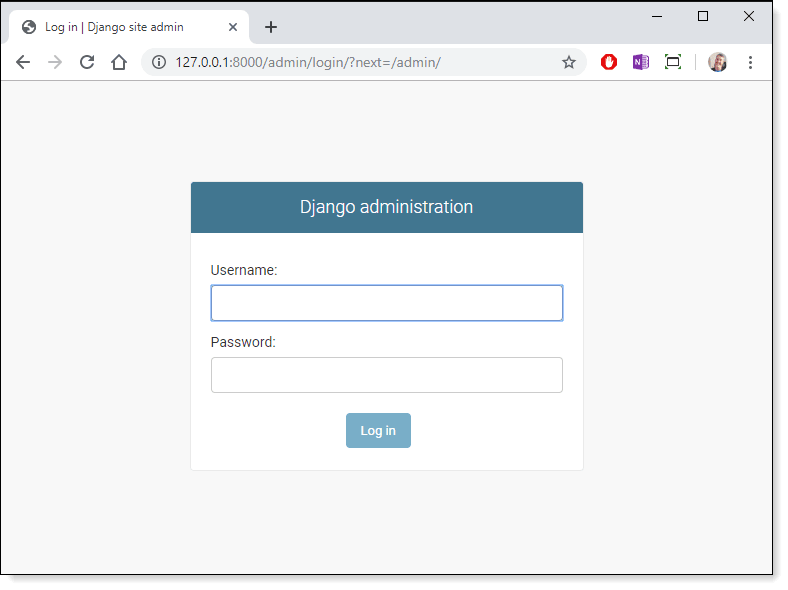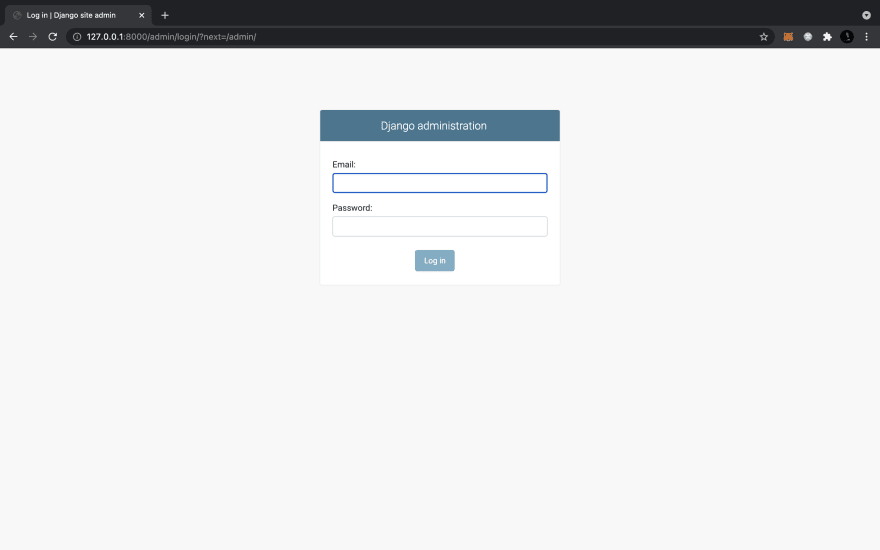32
How to Use Email as Username for Django Authentication.
Django comes with a default user model that's used for the standard authentication system. If you had worked on Django you probably have seen this authentication page.

We're going to override this model with our own custom model that allows us to use an
Email instead of the standard Username that comes with the Django default model.We're gonna modify
The first thing we need to do is import some additional classes at the top.
models.py file to include our user profile model.The first thing we need to do is import some additional classes at the top.
AbstractBaseUser
According to Django documentation
AbstractBaseUser has the authentication functionality only , it has no actual fields, you will supply the fields to use when you subclass.PermissionsMixin
Django provides
PermissionsMixin. This is an abstract model you can include in the class hierarchy for your user model, giving you all the methods and database fields necessary to support Django’s permission model.BaseUserManager
If your user model defines
username, email, is_staff, is_active, is_superuser, last_login, and date_joined fields the same as Django’s default user, you can install Django’s UserManager; however, if your user model defines different fields, you’ll need to define a custom manager that extends BaseUserManager.Add this lines at top of the file.
from django.contrib.auth.models import AbstractBaseUser
from django.contrib.auth.models import PermissionsMixin
from django.contrib.auth.models import BaseUserManagerUnderneath the imports let's create a new class called
UserProfile and inherit from the AbstractBaseUser and PermissionsMixinclass UserProfile(AbstractBaseUser, PermissionsMixin):
""" Database model for users in the system """
email = models.EmailField(max_length=255, unique=True)
name = models.CharField(max_length=255)
objects = UserProfileManager()
USERNAME_FIELD = 'email'
REQUIRED_FIELDS = ['name']
def __str__(self):
""" Return string representation of our user """
return self.emailBy adding above code we:
email and name field required and made email uniqueUSERNAME_FIELD which defines the unique identifier for the username to email.UserProfileManager
Now that we have our custom user model we can go ahead and create a manager. Now because we've customized our model we need to tell Django how to interact with this user model in order to create users because by default when it creates a user it expects a user name field and password field but we replace the user name field with an email field.So we just need to create a custom manager that can handle creating users with an email field instead of a user name field.
Let's create a new class called
UserProfileManager and inherit from the BaseUserManager.class UserProfileManager(BaseUserManager):
""" Manager for user profiles """UserProfileManager the way it manages work is you specifysome functions within the manager that can be used to manipulate objects within the module that the manager is for.
Below are two functions which we need to add in
UserProfileManager class.def create_user(self, email, name, password=None):
""" Create a new user profile """
if not email:
raise ValueError('User must have an email address')
email = self.normalize_email(email)
user = self.model(email=email, name=name)
user.set_password(password)
user.save(using=self._db)
return user
def create_superuser(self, email, name, password):
""" Create a new superuser profile """
user = self.create_user(email,name, password)
user.is_superuser = True
user.is_staff = True
user.save(using=self._db)
return userAbove code sets logic for when one creates users and superusers using Django CLI.
We need add below line in
settings.py to use this model over default one.AUTH_USER_MODEL = 'App_name.UserProfile'Create new migrations and migrate them which will create a new database that uses our custom User Model:
$ python manage.py makemigrations
$ python manage.py migrate$ python manage.py createsuperuser
Email address: [email protected]
Password:
Password (again):
Superuser created successfully.As you can see instead of asking for
Username it is prompting for Email.
32
